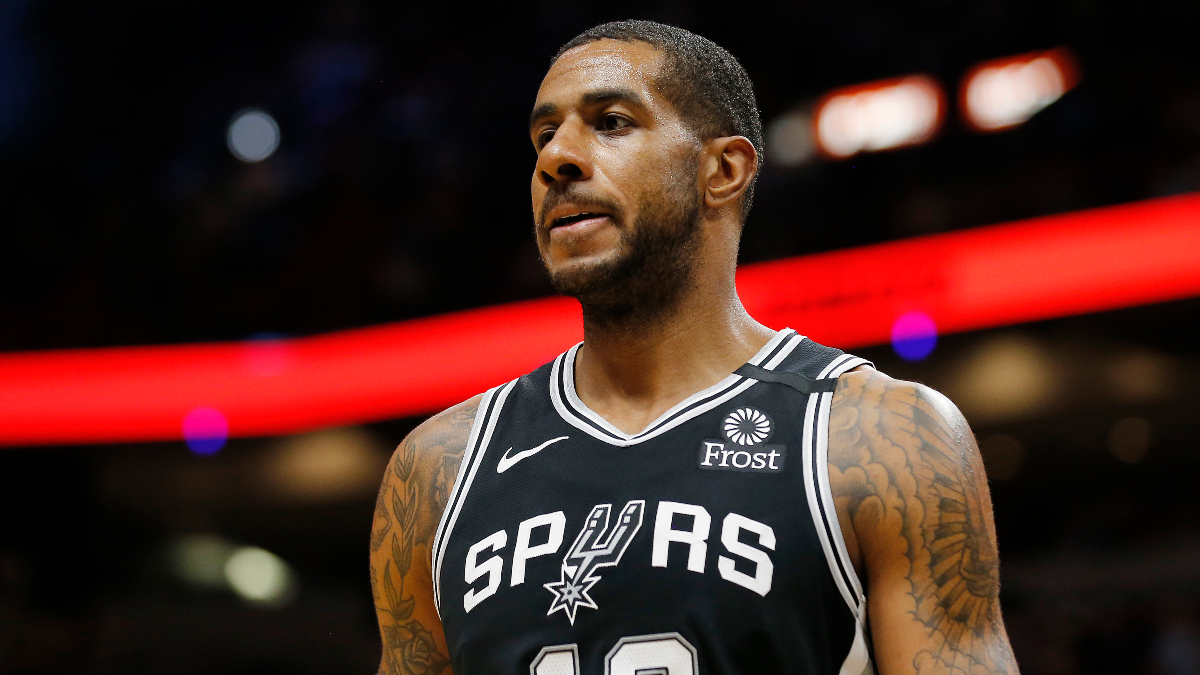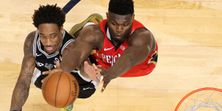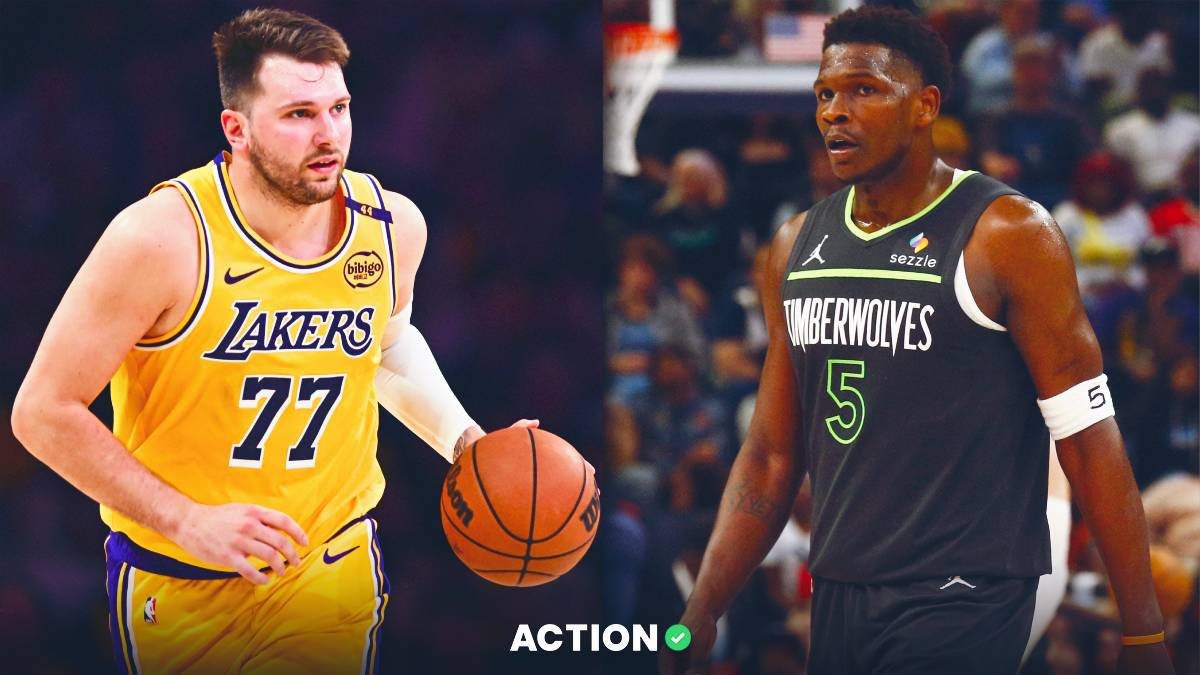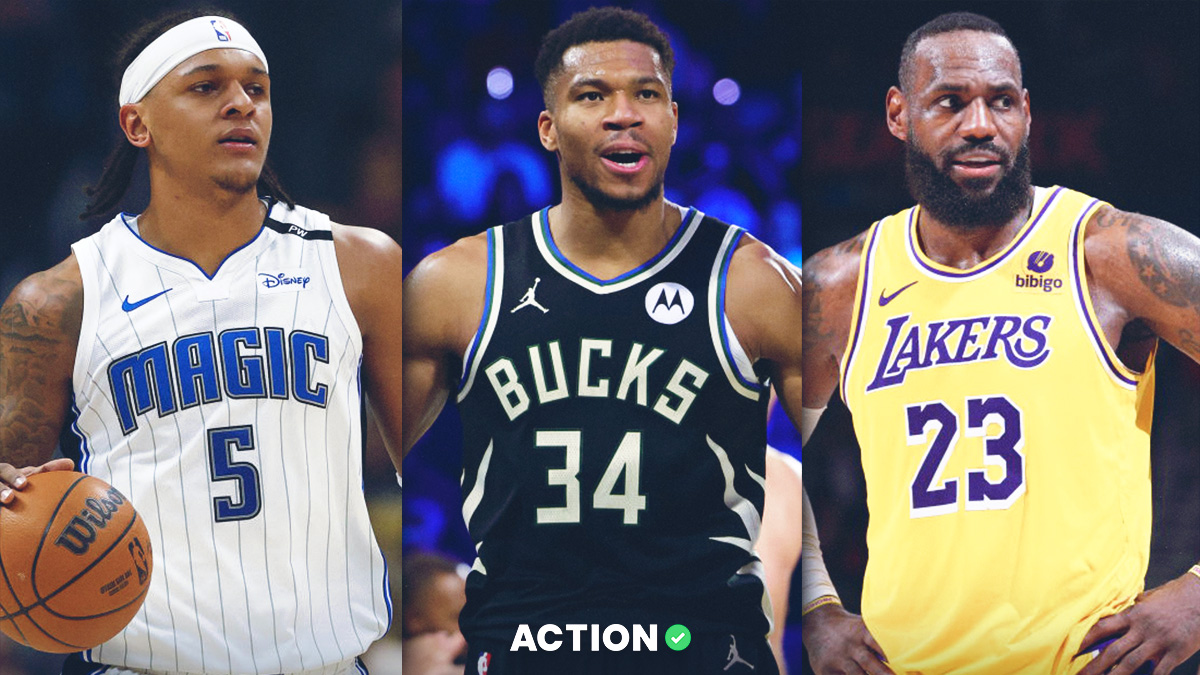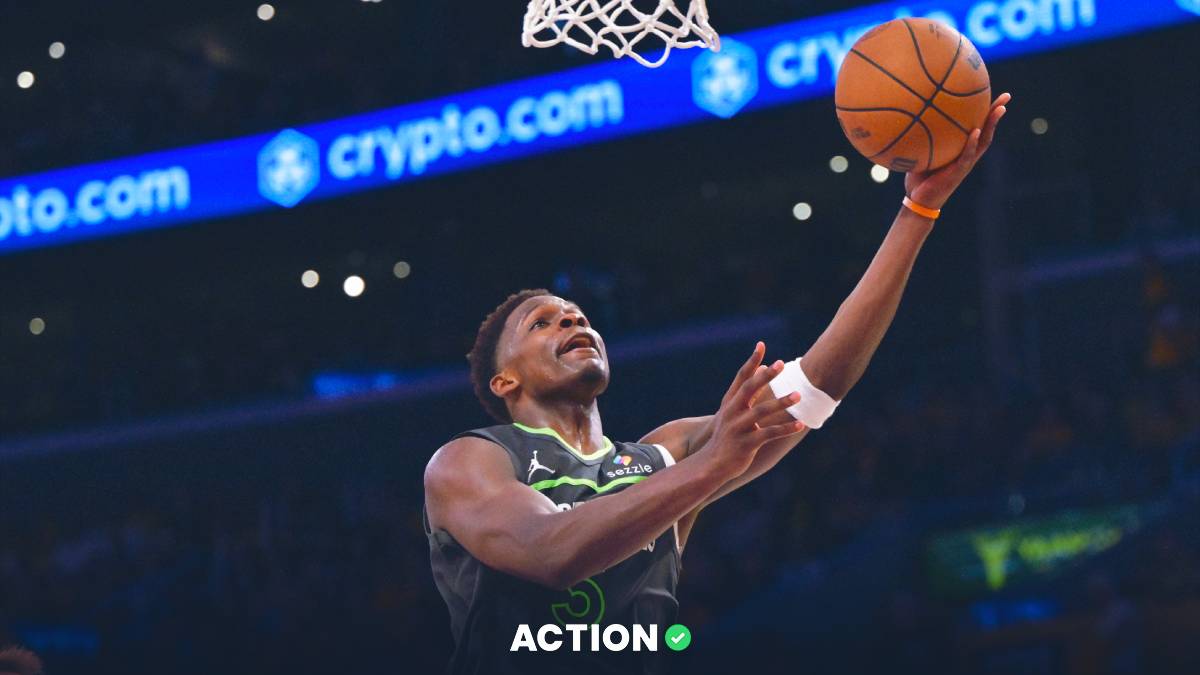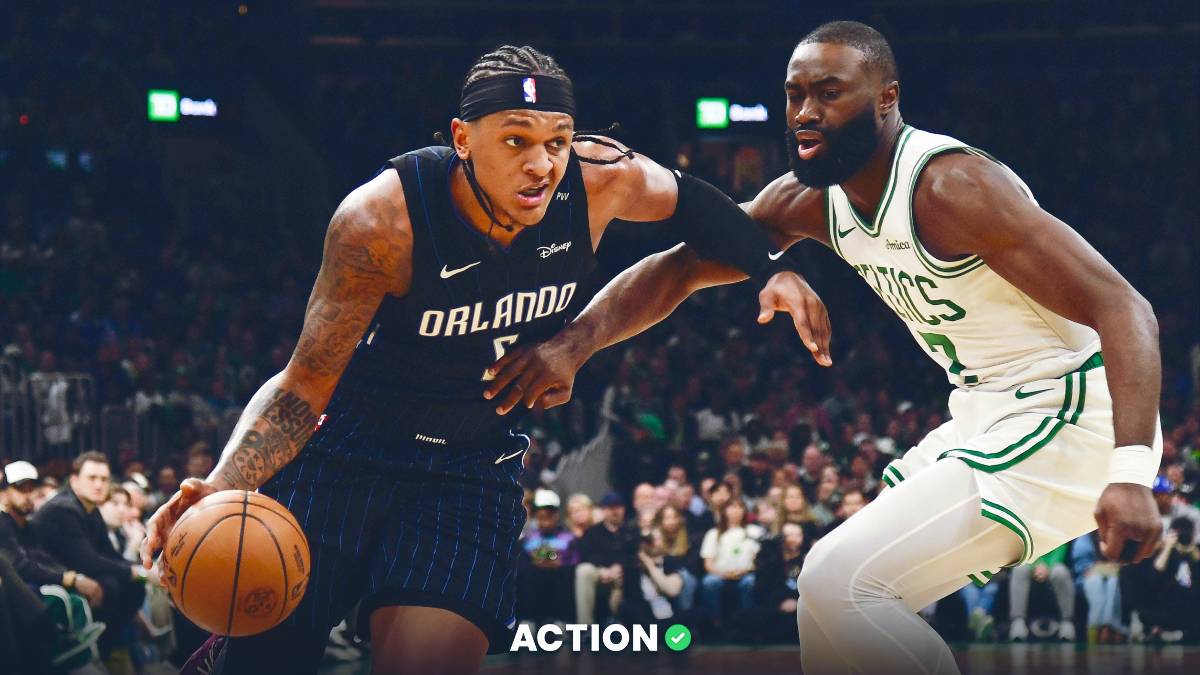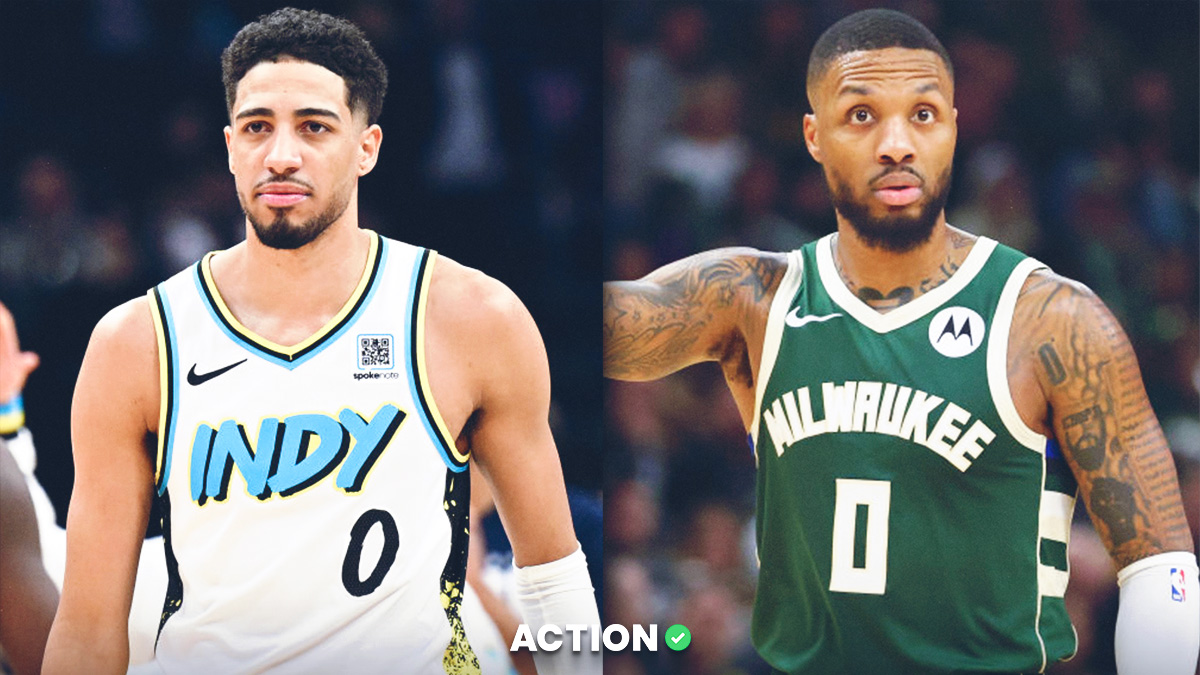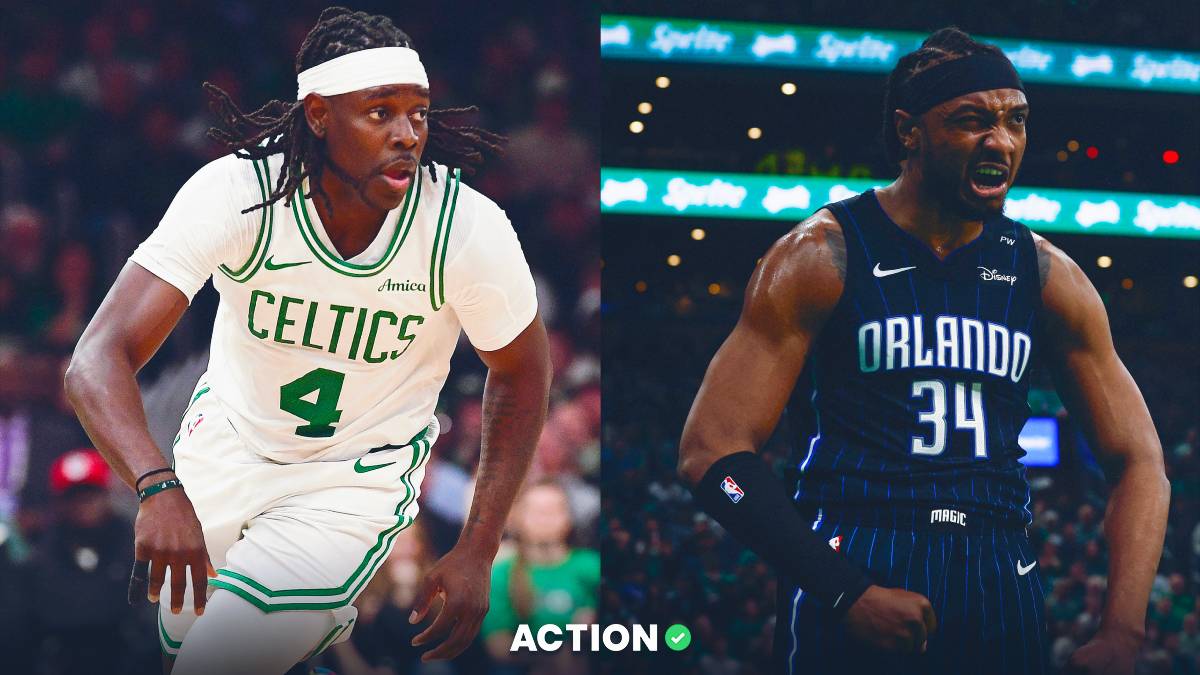I want to be super clear on this: LaMarcus Aldridge needing shoulder surgery sucks for him.
He's a 34-year-old veteran who has undergone a lot of bruising through the years. He's set to be a free agent for what is likely his last major contract and now he has to deal with shoulder surgery and rehab. That's super painful. I'm just not sure the Spurs got worse here.
Whenever I start this conversation, I'm often confronted with two criticisms on the surface. One, I must be feigning contrarianism, because the idea of a good player being bad for a team does not mesh with deductive logic. Aldridge, a seven-time All-Star, is a great NBA player. He has excellent post moves, and has grown as both a defender and rebounder in his time. So it doesn't make sense that the Spurs would be better without him.
The second criticism is one of analytics. Just because the numbers say something, it doesn't mean what the number implies is the truth.
My response to these criticisms is pretty simple. I'm not contrarian. If I'm going to rumble my big backside down to the block and set up shop for a contrarian position, I'm not going to go with something about the Aldridge. There's no win there. I'm going to claim Draymond Green is better than Steph Curry, or something.
Second, the key with analytics is you have to find the context of the numbers and see if it matches the eye test. If it doesn't, you need to figure out why they don't match. But you don't just ditch the data, you find out what's creating the issue.
The Problem With LaMarcus Aldridge
Here's what stands out the most: the Spurs have worse performance with Aldridge in lineups using nine of the top 11 players in minutes.
A positive number in the differential column means the team is better with Aldridge on court, a negative number means they are worse with Aldridge on-court.
When you dig deeper, this becomes the key metric to watch for. Here's defensive rating for Spurs rotation players with and without Aldridge:
In this instance, a positive number means the defense is better (gives up fewer points per 100 possessions) with Aldridge on-court, a negative number means the defense gives up more points with Aldridge on-court.
Not great for ol' LMA.
Now, the mistake people make is looking at these numbers and thinking the data says Aldridge is a bad defender. And if you've watched his career, you know that at this point, he's a really good defender. So the numbers must be wrong, right?
Well, no. Because you're inferring what the numbers are telling you. The numbers aren't telling you anything about Aldridge's individual defense. What they are telling you is that, for whatever reason, the Spurs defend at a better rate and therefore outscore their opponent by more with Aldridge off the floor.
What Do the Spurs Look Like Without Aldridge?
Let's take a step back. If we're going to seriously downgrade the chances of the Spurs reaching the final seed in the Western Conference, as Westgate did in moving them from 25-1 to 50-1 in the wake of Aldridge's surgery, then we need to identify where they're going to miss him.
There are three potential areas:
- Offense
- Defense
- Gravity
On the first front, according to Cleaning The Glass, the Spurs were worst in meaningful time with Aldridge on-court on the offensive end. He was 30th percentile in terms of the impact having him on the floor had towards the offense.
But let's talk in more concrete terms. Aldridge himself is a monster, he ranks 91st percentile in terms of points per possession via Synergy Sports.
But the Spurs offense devolves into something rotten when he's on the floor. The Spurs head into the 99th percentile among all teams in long mid-range shots when Aldridge is on the floor, per Cleaning The Glass. They go to the ninth percentile and drop by 4% in shots at the rim.
Without Aldridge, the offense still takes a ton of long-range jumpers thanks to, you guessed it, DeMar DeRozan. But the number is slightly slower, and the offense still hums at 115 points per 100 possessions.
Here's the big thing: with Aldridge and DeRozan on-court, the Spurs create fewer high-percentage looks and knock down the ones they do create at a lower rate. They go from 67th percentile in making 3's with both of those players on-court to 90th percentile when Aldridge is off … all while the defense gets better.
The defense thing might be bugging you. After all, Aldridge is big, strong, smart, and the numbers all back this up: he's contested shots at the rim in the 91st percentile, holding opponents to just 41% shooting.
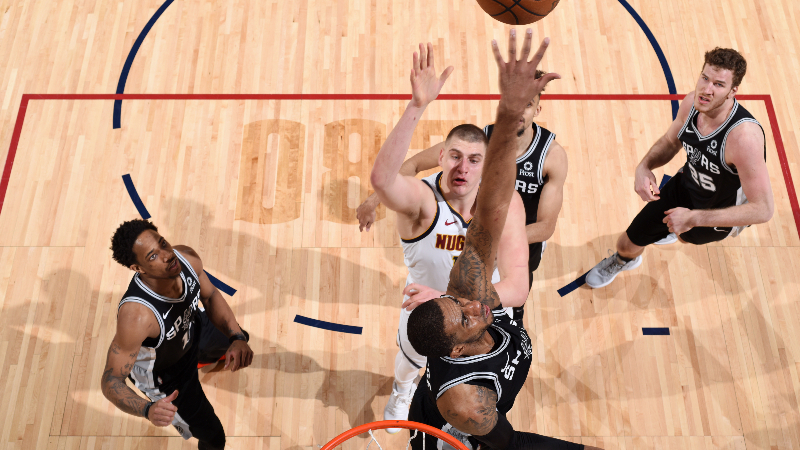
Here's the big thing that undermines all this and rots it out from the core: with Aldridge on the bench and DeRozan on-court, the Spurs allow just 60.7% shooting at the rim (78th percentile), per Cleaning The Glass. When you put Aldridge next to DeRozan, that number skyrockets to 67% shooting (10th percentile!).
And since it begs the obvious question, without Aldridge or DeRozan, the Spurs defend the rim allowing just 59% shooting, which is 86th percentile.
There are other numbers that stand out, like transition. The Spurs rank 30th in the league in transition defense, per Synergy Sports. With Aldridge on-court, they give up 114.3 points per 100 possessions in transition. That gets worse with Aldridge on the bench and DeRozan on. But here's the kicker: with neither one on-court they give up just 105.4.
To put this in English: the Spurs with either DeRozan, or Aldridge on-court get run off the floor. With neither on, they do a pretty good job. Sure, the fact that they are playing starters vs. the other players playing bench matters, but bear in mind the fluidity of the Spurs' rotations.
This also needs to be stressed: it's not like you go back through and find that 80% of the Spurs' opponents transition buckets are from Aldridge's man. It's a total, systemic issue. Spurs guards Bryn Forbes and Patty Mills are undersized, Dejounte Murray is often lost. There are individual instances I can point out to showcase Aldridge's problems in transition, but it's cherry-picking understandable plays to prove a point.
Here's what doesn't make sense: if it's not Aldridge's fault, then why are they so much better without him in this regard? You can chalk up a marginal improvement or even a substantial one to playing bench rotations.
But the kind of improvement you see across the board suggests that, for whatever reason, the Spurs simply play better without Aldridge.
Finally, there's the first quarter issue. The Spurs started in a hole for much of the season with Aldridge on the floor. The Spurs were outscored in Aldridge's first-quarter minutes in 29 of the team's 53 games. Starting in a hole like that is brutal especially against tougher the competition in the eight games being played at the Orlando bubble.
The One Concern
Now before we go all crazy on Spurs to make the playoffs, it's important to ask the question of what their goals are, here.
The Spurs just lost their best- or second-best player. Gregg Popovich typically has a pretty big-picture view of things. Will the Spurs go all out to protect the playoff streak spanning more than 20 years? The investment of the team in this specific weird set of circumstances is reason enough to bail.
Any sort unpublished indicator of the Spurs basically pulling an "I'm just here so I don't get fined" would also explain such large odds for such a small gap for the team to overcome.
But I kind of lean the other way.
The Spurs are always a process-over-results team first and foremost. They play the right way, or at least whatever Popovich has determined is the right way. A key part of Aldridge's absence is that they are much more likely to play fast, move the ball, and take more 3's.
They didn't take more 3's with Aldridge off-court this season, but with Aldridge gone, they have a chance to redefine their identity and play to their strengths, something they have not done since Aldridge was signed as a free agent years ago (despite their tremendous success).
I laid out all the reasons to take the Spurs based on their schedule and win profile earlier this week before the news on Aldridge had dropped. But even after losing their All-Star, I haven't soured on the Spurs; I'm more drawn to the value of their 8th-seed odds than ever.


